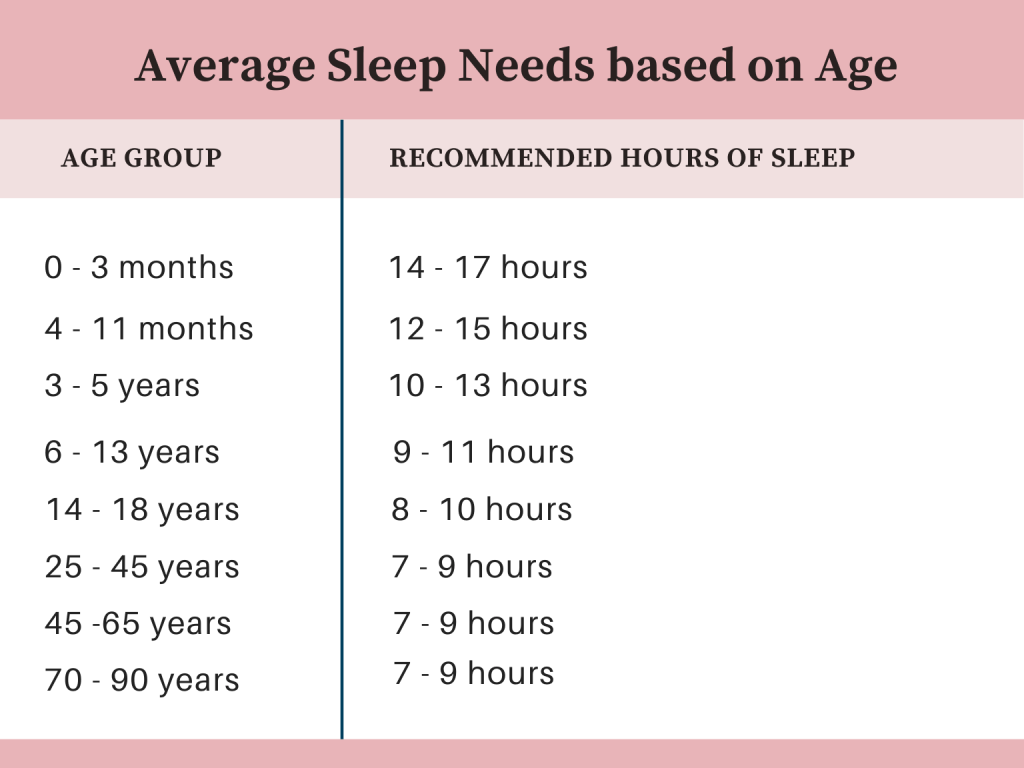Sleep is particularly essential because it heavily influences our energy level, our motivation, and our emotions. It affects our daily functioning, our physical and mental health in many ways. Not sleeping enough or sleeping too much causes a lot of problems. Sleep is the natural way for our body and mind to repair itself. According to the Centers for Disease Control and Prevention, a third of American adults report not getting enough sleep. Poor sleep is connected with many chronic health conditions such as depression, diabetes, heart disease, obesity, to name a few.
When people do not sleep well, it also leads to motor vehicle accidents and avoidable mistakes in their work. Sleep is not a luxury; its a necessity of life. To improve sleep, we must first understand what sleep means, types of sleep, stages of sleep, symptoms of sleep deprivation, and recommended hours of sleep.
Types of sleep
There are two main types of sleep. The two types of sleep together make up a single sleep cycle. The first type of sleep is the non-rapid eye movement (NREM) which also known as quiet sleep, and the other is the rapid eye movement (REM) also known as active sleep.
Four stages of sleep
In the sleep process, there are four stages, and during an ideal night’s sleep, we go through several cycles of the four stages of sleep. The diagram below highlights what happens in each sleep stage.

So much sleep do you need?
Our mental health is significantly impacted when we sleep too much or too little. Poor sleep leads to cognitive impairment and may cause or contribute to many depressive disorders. Poor sleep or excessive sleep is also one of the common symptoms of depression and anxiety. When you are experiencing sleep deprivation, common symptoms include irritability, poor concentration, forgetfulness. tiredness and hallucinations. The recommended hours of sleep you need will vary based on your age. Children under the age of 5 typically need the most amount of sleep hours. After the age of 25, the recommended number of sleep hours is between 7 – 9.

To avoid experiencing health problems and other psychosocial impacts, sleep should be prioritized. Poor sleep or excessive sleep could be an indication of chronic health problems. Knowing what sleep means and how much of it you need, can help you identify any health problems in its early stages and receive appropriate intervention. The American Academy of Sleep Medicine has created a sleep diary that can help you with tracking your sleep and understanding your sleep patterns better. You can find it here http://yoursleep.aasmnet.org/pdf/sleepdiary.pdf. In my next blog post, I will offer you strategies to improve your sleep.
References
American Sleep Association Reviewers and Writers Board-certified sleep M.D. physicians. (n.d.). What is Sleep and Why is It Important? Retrieved from https://www.sleepassociation.org/about-sleep/what-is-sleep/
American Academy of Sleep (n.d). Two weeks sleep diary. Retrieved from http://yoursleep.aasmnet.org/pdf/sleepdiary.pdf
Encyclopedia of Children’s Health (n.d.). Sleep. Retrieved from http://www.healthofchildren.com/S/Sleep.html
Centers for Disease Control and Prevention (n.d). What should I do if I can’t sleep. Retrieved from https://www.cdc.gov/sleep/about_sleep/cant_sleep.html
Centers for Disease Control and Prevention (n.d). Sleep and Sleep Disordered. Retrieved from https://www.cdc.gov/sleep/index.html
Centers for Disease Control and Prevention (n.d). CDC Healthy Schools. Sleep and Health. Retrieved from https://www.cdc.gov/healthyschools/sleep.htm
